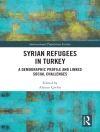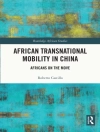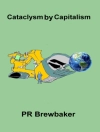The future of nuclear weapons and nuclear strategy in the 21st century is not entirely predictable from the Cold War past. Nor is it easy to foresee on the basis of what has happened since the Soviet Union collapsed in 1991. Cimbala contends that nuclear weapons and the psychology of nuclear deterrence will remain important after 2000, but the character of that importance will change. No longer will nuclear weapons be the dominators of military technology. Instead, advanced technology conventional weapons, based on information and electronics, will supplant nuclear weapons as the instruments of military supremacy in the 21st century.What, Cimbala asks, can be expected of nuclear weapons in the 21st century, given what we have learned from previous experience in the Cold War and in the 1990s? Cimbala expects that nuclear weapons will spread among currently non-nuclear states, and states with regional grievances or hegemonic aspirations will seek to deploy small nuclear forces as deterrents against neighbors or against outside intervention by the United States in regional conflicts. Regional rogue states may also obtain nuclear weapons. Nonetheless, as Cimbala explains, the international balance of power is unlikely to change. As he makes clear, power will be less dependent on deployed military platforms and more dependent on information warfare. A thoughtful and provocative analysis that will be of particular interest to policy makers, scholars, and other researchers involved with arms control, security studies, and international relations.
Cimbala Stephen J. Cimbala
Nuclear Strategy in the Twenty-First Century [PDF ebook]
Nuclear Strategy in the Twenty-First Century [PDF ebook]
购买此电子书可免费获赠一本!
语言 英语 ● 格式 PDF ● 网页 224 ● ISBN 9780313003677 ● 出版者 Bloomsbury Publishing (USA) ● 发布时间 2000 ● 下载 3 时 ● 货币 EUR ● ID 9116438 ● 复制保护 Adobe DRM
需要具备DRM功能的电子书阅读器












